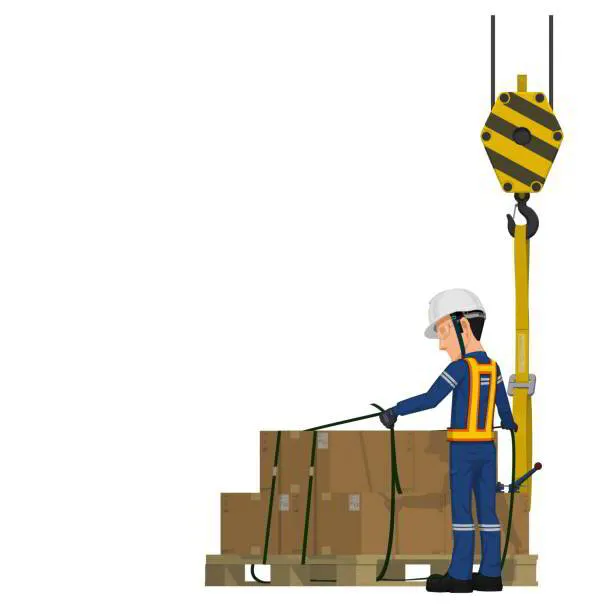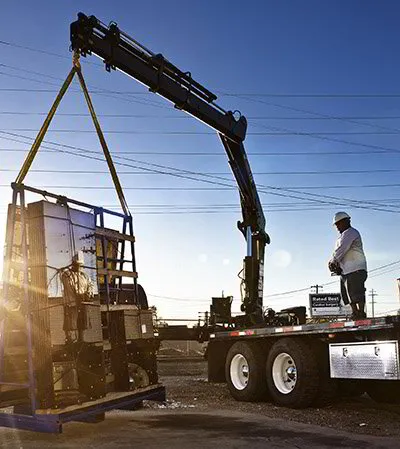Welcome !
Some info about the courses and materials they will find in their membership. Below you can have a entry welcoming video.
Mobile Crane Operator
Earning your Mobile Crane Operator certification at crane school enhances safety, skills, employability, and compliance with industry standards.
Rigger Qualification / Certification Program
The Rigger Qualification/Certification Program focuses on developing expertise in safely attaching loads to cranes and ensuring secure lifting and movement on job sites.
Articulating Crane Operator Certification
Articulating Crane Operator Certification validates the ability to safely operate knuckle boom cranes, ensuring compliance with regulations and enhancing job safety.
Signalperson Qualification / Certification Program
Signalperson Certification trains in crane communication, boosting site safety and efficiency.
Managing Crane Safety Class
Managing Crane Safety Class focuses on leadership in crane operations, emphasizing safety management and regulatory compliance.
Telehandler Operator Program
Telehandler Operator Program teaches safe, efficient use of telescopic handlers, focusing on operation, safety, and maintenance.
Mobile Crane Operator
A Mobile Crane Operator is a skilled professional adept in managing mobile cranes—crane systems mounted on mobile platforms or wheels. These specialists are pivotal in the lifting and movement of heavy materials and equipment across various sites, including construction zones and industrial environments. The role encompasses crane setup, secure positioning, operation for load lifting and movement, and strict adherence to safety protocols. Essential to numerous construction and industrial endeavors, they must possess a deep understanding of crane mechanics, load dynamics, and comprehensive safety standards. This position not only demands NCCCO certification but also a strong adherence to crane safety practices, ensuring efficient and secure operations at all times.
How to Get Certified
How to Get Certified
To achieve Mobile Crane Operator Certification, aspirants are required to successfully pass both written and practical examinations. The written examination delves into critical aspects such as crane setup, load management, and emergency protocols. Conversely, the practical examination evaluates the candidate's proficiency in maneuvering the crane under realistic conditions. Eligibility for this certification demands adherence to certain prerequisites, encompassing age, physical fitness, and previous experience in the field. This certification process underscores the importance of comprehensive knowledge in crane mechanics, safety protocols, and practical skills, ensuring operators are well-equipped for safe and efficient crane operation in various industrial and construction settings. The process not only emphasizes NCCCO standards but also highlights the necessity of rigorous training and adherence to safety practices, pivotal for achieving excellence in crane operations.
Training at The Crane School:
Training at The Crane School:
The Crane School provides in-depth training programs tailored to equip candidates for the Mobile Crane Operator Certification. These programs encompass classroom lessons focusing on theoretical knowledge and practical training sessions to hone operational competencies. With guidance from seasoned instructors, students are meticulously prepared for both the written and practical examinations. This holistic approach to training not only covers essential topics such as crane mechanics, safety protocols, and load dynamics but also emphasizes real-world application, ensuring candidates are thoroughly versed in all facets of crane operation. This preparation is pivotal for aspiring operators aiming to meet NCCCO standards and achieve certification success.
Benefits of Certification
Benefits of Certification
Acquiring a Mobile Crane Operator Certification significantly bolsters an operator's credibility and professional status. It showcases a dedication to safety and adherence to industry standards, crucial in a domain where safety is of utmost importance. This certification opens doors to increased salary prospects, enhanced job stability, and a wider range of employment possibilities across the industry. By highlighting the operator's expertise in crane mechanics, load handling, and safety protocols, certification not only underscores their proficiency but also their commitment to maintaining a safe working environment. This commitment is highly valued by employers and can be a decisive factor in securing positions that require the highest levels of trust and responsibility in crane operation.
OPERATOR WRITTEN EXAMINATIONS
The Mobile Crane Operator Written Examinations consist of a Core Examination in crane operation and up to three crane Specialty Examinations. Certification requires competency in both the Core and one or more Specialty designation(s).
The Core Examination has 90 multiple-choice questions. Candidates are allowed 90 minutes to complete the Core Examination. Each Specialty Examinations consists of 26 multiple-choice questions. Candidates are allowed 60 minutes to complete each Specialty Examination.
All candidates are required to take the Core Examination, regardless of the Specialty(s) in which they wish to be certified.
Telescopic Boom Cranes—Swing Cab (TLL)
Telescopic Boom Cranes—Fixed Cab (TSS)
Telescopic Boom Cranes—Swing Cab (TLL)
Rigger Level I and Rigger Level II
The Rigger certification, delineated by the National Commission for the Certification of Crane Operators (NCCCO), targets individuals engaged in load handling and movement. This certification underscores the importance of specialized training and assessment across a spectrum of rigging operations. Distinctly, the program is bifurcated into two tiers of certification, accommodating varying degrees of expertise and responsibility in the rigging domain. Level I focuses on basic rigging practices, requiring proficiency in selecting rigging components and basic load control techniques. Level II caters to more advanced rigging challenges, including the execution of complex lifts and the formulation of load-handling strategies. Each level demands a thorough understanding of safety protocols, rigging equipment, and the physics underlying load manipulation, ensuring riggers are well-prepared to maintain safety and efficiency on the job site.
The Crane School offers a comprehensive Rigger Qualification/Certification Program designed to prepare individuals for both written and practical exams in line with OSHA regulations. The school prides itself on over 21 years of experience in training students for heavy equipment operating certifications, emphasizing a communication and teaching style that caters to various learning preferences. Instructors at The Crane School are not only highly experienced in the crane industry but also possess the ability to simplify complex concepts, making learning accessible and effective for students from diverse backgrounds.
How to Get Certified
How to Get Certified
The process to obtain Rigger Certification involves both written and practical exams. Candidates must demonstrate their understanding of rigging principles, equipment identification, and the proper methods for securing various types of loads. The certification process is designed to assess a candidate's competency in ensuring safety and efficiency on the job site.
- CERTIFIED RIGGER LEVEL I EXAMS
The Certified Rigger Level I Written Examination consists of 60 multiple-choice questions. Candidates are allowed 60 minutes to complete the test. Complete Practical Examination as well.
- CERTIFIED RIGGER LEVEL II EXAMS
The Certified Rigger Level II Written Examination consists of 50 multiple-choice questions. Candidates are allowed 60 minutes to complete the test. Complete Practical Examination as well.
Both levels require passing written and practical exams. Certification is valid for five years, after which recertification is required. The Crane School can provide training and resources to help individuals prepare for these certifications.
Training at The Crane School:
Training at The Crane School:
The Crane School offers comprehensive training programs tailored for Rigger Certification candidates. These programs cover a broad spectrum of topics, including but not limited to, rigging equipment identification, proper selection and inspection of rigging gear, load calculation, and communication during rigging operations. The school's experienced instructors provide both theoretical knowledge and practical skills through hands-on training, preparing students for the certification exams and real-world rigging challenges.
Benefits of Certification
Benefits of Certification
Achieving Rigger Certification brings numerous advantages. Certified riggers are recognized for their expertise and commitment to safety, making them highly sought after in the workforce. This certification opens up career advancement opportunities, potentially leading to higher wages and more significant responsibilities. Additionally, certified riggers contribute to creating safer work environments, reducing the risk of accidents and ensuring compliance with industry regulations.
Telehandler Operator
The Telehandler Operator Certification is specifically tailored for individuals operating telehandlers, a type of heavy equipment used for lifting and transporting materials in various settings, including construction and agriculture. This certification ensures operators possess the necessary knowledge and skills to safely and effectively manage telehandler operations, understanding machine mechanics, load capacities, and safety protocols.
How to Get Certified
How to Get Certified
To achieve Telehandler Operator Certification, candidates are required to complete both theoretical and practical examinations. These assessments test an operator's understanding of telehandler mechanics, safety procedures, operational techniques, and adherence to industry standards and regulations.
- CCO WRITTEN EXAMINATIONS
The Telehandler Operator Written Examination has 70 multiple-choice questions. Candidates are allowed 60 minutes to complete the written examination.
- CCO PRACTICAL EXAMINATIONS
The Telehandler Operator Practical Examination demonstrates operation proficiency and is available for two telehandler types:
Fixed Telehandler
Rotating Telehandler
A candidate must pass both the written exam and the practical exam to be certified for a three-year period. Candidates who take and pass the Rotating Telehandler practical examination are not required to take and pass the practical exam in the Fixed Telehandler category.
Training at The Crane School:
Training at The Crane School:
At The Crane School, the Telehandler Operator training program encompasses comprehensive instruction on operational techniques, safety measures, and practical handling of telehandlers. The curriculum is designed to prepare students for the certification examination through a blend of classroom learning and hands-on experience, under the guidance of seasoned instructors with extensive field knowledge.
Benefits of Certification
Benefits of Certification
Earning a Telehandler Operator Certification offers significant advantages, such as enhancing job site safety through competent operation, increasing employability and career advancement opportunities due to recognized qualifications, and fostering a culture of safety and efficiency. Certification underscores an operator’s commitment to professional development and adherence to safety standards, making certified individuals highly valued in the construction and agricultural sectors.
Signalperson
Signalperson Certification is designed for individuals who are responsible for the communication between the crane operator and personnel on the ground. It focuses on ensuring that signal persons are proficient in using standard hand and voice signals to direct the operator during lifting operations, enhancing safety and efficiency on the worksite.
How to Get Certified
How to Get Certified
To achieve Signalperson Certification, candidates must pass both written and practical examinations. These assessments evaluate the candidate's knowledge of standard signaling practices, understanding of crane operations, and ability to effectively communicate with the crane operator and other team members during lifting activities. To be certified, candidates must be 18 years or older, comply with substance abuse policies, and pass both written and practical exams, focusing on hand signals, voice communication, and crane operation understanding.
- CCO SIGNALPERSON WRITTEN EXAMINATION
The CCO Signalperson Written Examination consist of 60 multiple-choice questions. Candidates are allowed 60 minutes to complete the examination.
- CCO SIGNALPERSON PRACTICAL EXAMINATION
The CCO Signalperson Practical Examination requires the candidate to demonstrate proficiency in giving both hand signals and voice commands. The practical exam also assesses the candidate’s understanding of crane dynamics and crane operations per OSHA 29 CFR 1926.1428.
Training at The Crane School:
Training at The Crane School:
The Crane School offers a Signalperson Certification program that covers all necessary aspects, including the use of hand signals, voice-activated radios, and the proper communication protocols to ensure safe and efficient crane operations. Training is delivered by experienced instructors who emphasize practical skills and real-world application, preparing students thoroughly for their certification exams.
Benefits of Certification
Benefits of Certification
Obtaining Signalperson Certification provides critical benefits, such as enhancing worksite safety through effective communication and coordination between the crane operator and ground personnel. Certified signal persons are recognized for their specialized skills, leading to improved job prospects and career advancement opportunities within the construction and heavy equipment industries. Certification underscores an individual's commitment to maintaining high safety standards and operational efficiency in crane operations.
Articulating Crane Operator
Articulating Crane Operator Certification is tailored for operators of articulating cranes, which feature a boom with one or more folding sections allowing for a greater range of motion. This certification validates the operator's proficiency in safely maneuvering and operating these complex cranes in various work environments, ensuring they understand the specific mechanics, safety regulations, and load handling techniques associated with articulating cranes.
How to Get Certified
How to Get Certified
The certification process for Articulating Crane Operators involves rigorous written and practical examinations that assess a candidate's knowledge of operational safety, crane mechanics, and load handling specific to articulating cranes. Candidates must demonstrate their ability to operate these cranes safely and efficiently, adhering to established safety standards and operational procedures.
Candidates must be at least 18, comply with substance abuse policies, pass written and practical exams, and adhere to ethical standards.
- CCO WRITTEN EXAMINATIONS
Candidates are given 90 minutes to complete each of the written examinations; an on-screen calculator is provided on all of these exams:
*Articulating Boom Crane (ABC)—65 questions
*Articulating Boom Crane w/Winch (ABW)—75 questions
*Articulating Boom Loader (ABL)—50 questions
Candidates meeting the eligibility requirements may take either the written examination or the practical examination first.
- CCO PRACTICAL EXAMINATIONS
The practical examination demonstrates crane operator proficiency and is available for two crane types:
Articulating Boom Cranes (ABC)
Articulating Boom Loaders (ABL)
To be CCO-certified for a five-year period, candidates must pass the written exam of their choice and at least one corresponding practical exam.
Training at The Crane School:
Training at The Crane School:
The Crane School offers comprehensive training specifically designed for articulating crane operators. This training encompasses both theoretical knowledge and practical skills essential for operating articulating boom cranes, focusing on safety protocols, crane mechanics, and operational techniques. The program prepares candidates thoroughly for the NCCCO certification exams, emphasizing hands-on experience to ensure operators can navigate complex lifting tasks and understand the nuances of articulating crane operation in various work environments.
Benefits of Certification
Benefits of Certification
Achieving the Articulating Crane Operator certification signifies a significant milestone in a crane operator's career. It not only validates the operator's skills and knowledge in adhering to the highest safety and operational standards but also opens up advanced career opportunities, potentially leading to higher salaries and more prestigious projects. Certification underscores an operator's commitment to safety and excellence in the crane industry, enhancing their credibility and making them a valuable asset to employers.
Have any questions?
Contact Us


